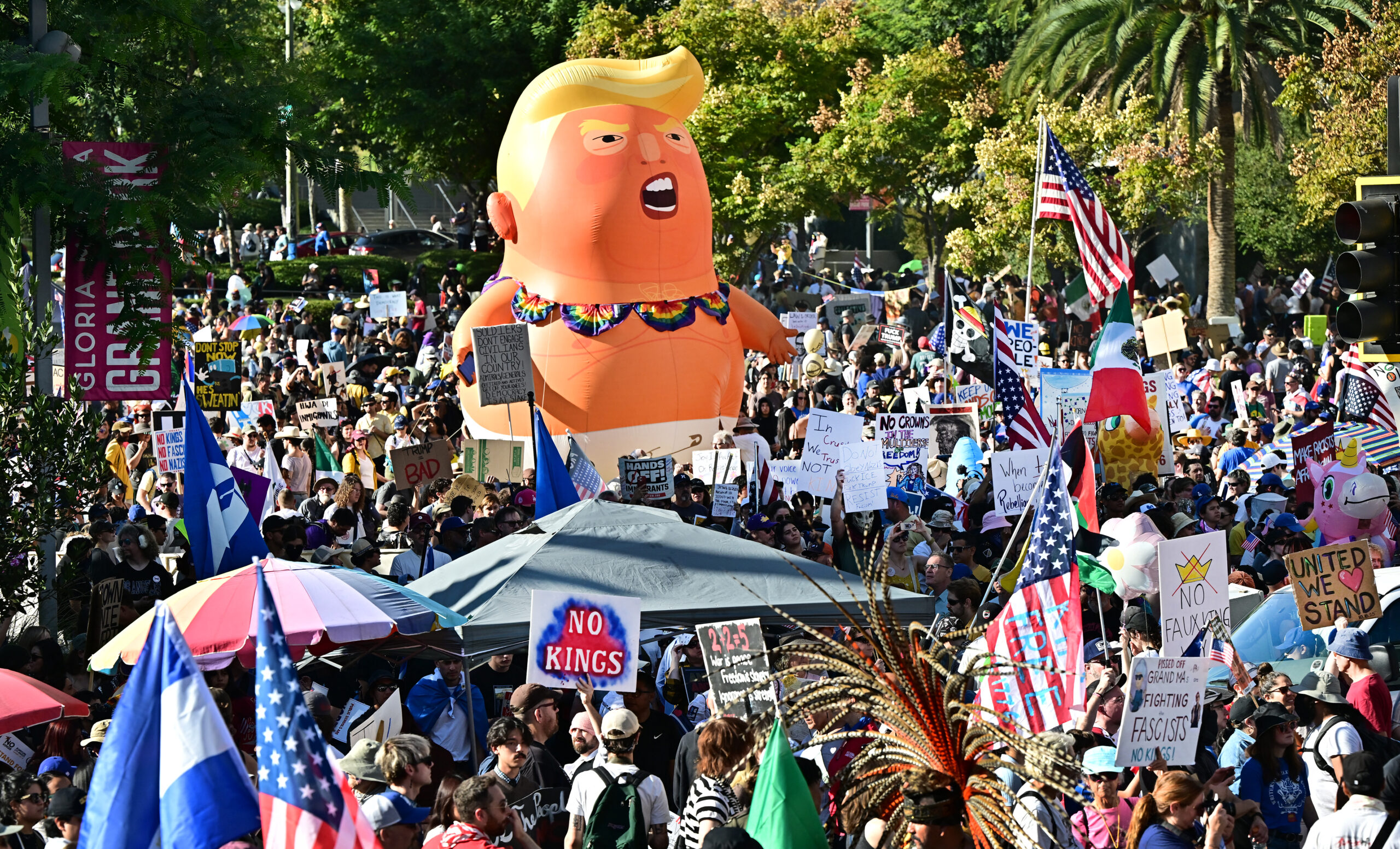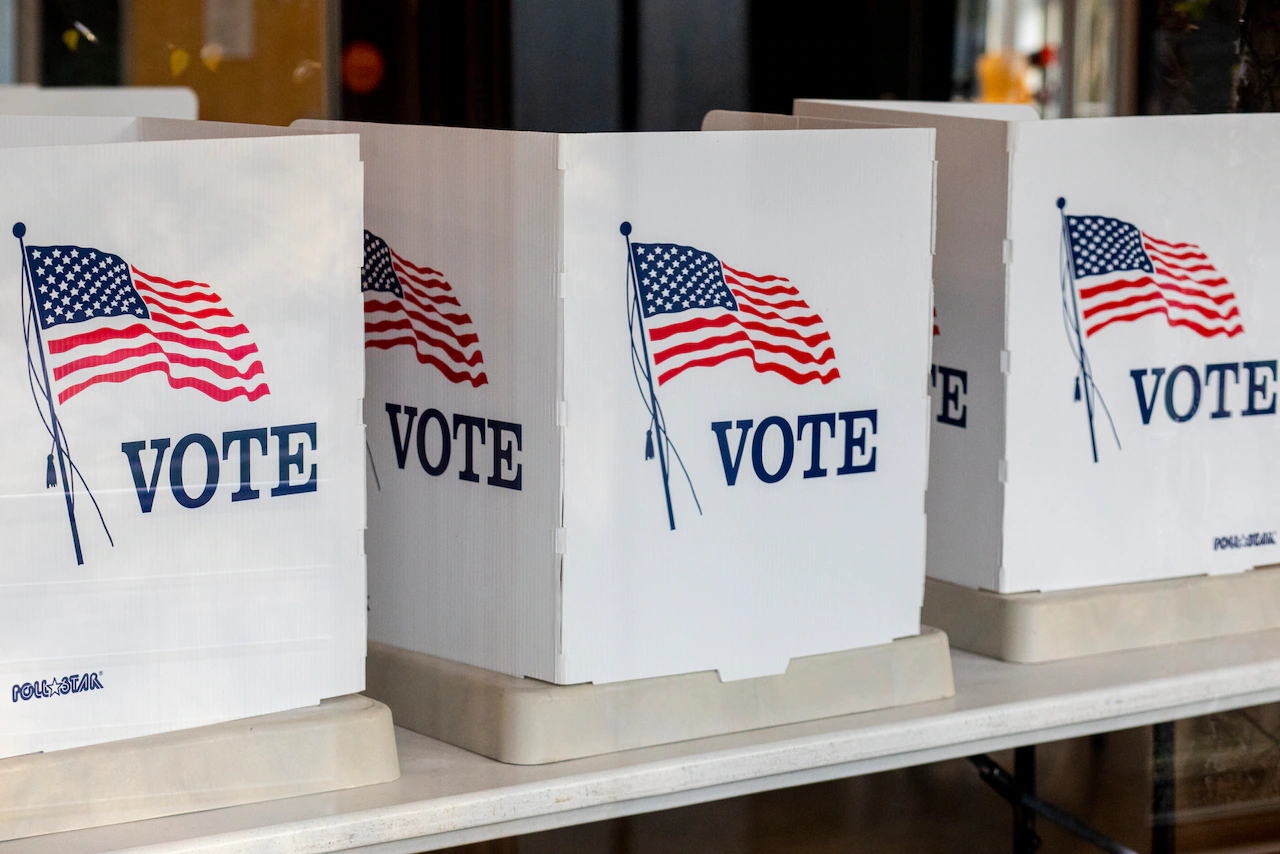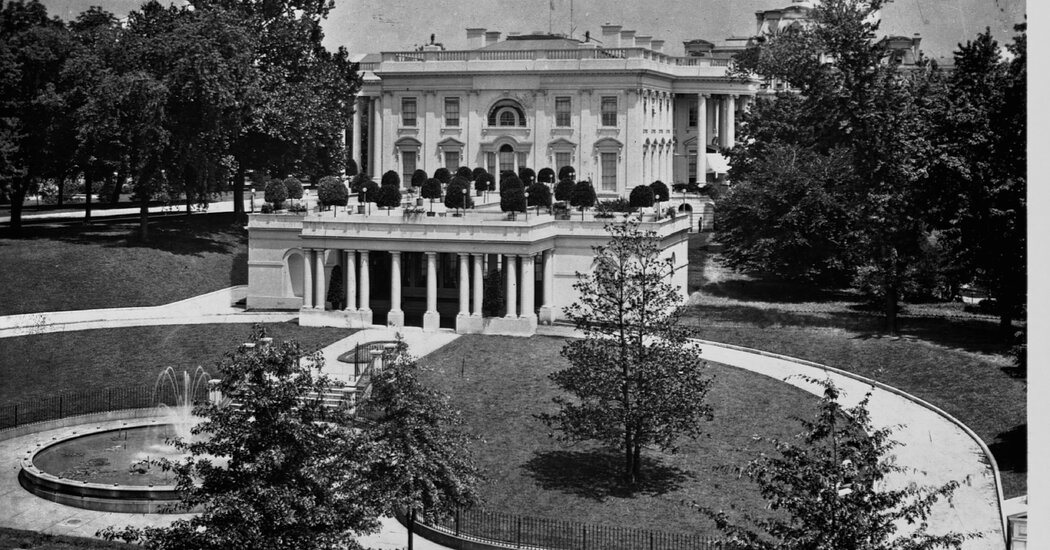Copyright The American Conservative

Loading the Elevenlabs Text to Speech AudioNative Player... I’m behind on the news. Did the No Kings marches across America finally change everything? Did Trump vanish, Greta ascend, and democracy restore itself? No? I actually did swing by the local No Kings march. A lot of the crowd were seniors, almost all white in our blue state, decked out in tie-dye for the women, gray ponytails for the men, and bandannas for the dogs. To them he was Donny Dementia, Impotus, Orange Man, Mango Mussolini, the Lying King, Cheeto Benito, Comrade tRump, and many more unprintable here. Back in the day, many of these same elderly marchers could only come up with “Tricky Dick” for Richard Nixon. Progress is real. Their signs reflected the variety of issues under protest, including some oldies-but-goodies like reprising endless demands around abortion rights, freeing Palestine, defunding the cops and Black Lives Matter, abolishing ICE, and multiple ones saying that Kamala or Hillary were president we’d all be having brunch now. One said, “No Kings, Maybe a Queen Someday.” They don’t seem to fear dictators who’ll dictate the right way, I guess. Points for funny slogans to attract “likes” for the sign; “No Kings But Burger King,” “Tylenol Over Tyranny.” A favorite was “Ikea has a Better Cabinet.” Leftists could even get away with homophobic mockery involving Putin they’d condemn any other day from the other side. It was clear almost anything fits under the No Kings meme. It is simply a 3-D version of what Democratic social media has become. Everything was perfect until Trump, and anything from your Netflix bill to war anywhere could be fixed today if Trump would disappear. Words like “fascism” are just pop synonyms for “stuff I don’t like.” What stands out most of all was the sense that the people may be united, not by their opinions on the range of topics, but by their childish hatred of one man. Despite all this righteous anger, the protests offered no road map for restoring institutional balance or civic trust. The lack of cause specificity in the signs was not accidental; it is integral to the movement as emotional glue to attract enough marchers to secure TV coverage. Like many modern protest movements, No Kings has thrived via social media, where symbolism and identity matter more than outcomes. The movement’s decentralized nature has allowed anyone to participate without hammering out a specific agenda. Yet that same openness made it difficult to hold anyone accountable or to sustain pressure on political institutions. And once the marches ended, participants returned to their comfortable partisan echo chambers. It was thus no surprise that in the crowd ignorance was bliss, as random conversations with marchers suggested a naivete about real Nazism and Hitler, or about the mechanics of impeachment or the 25th Amendment, both of which had their supporters. (Both crews seemed underinformed that successful employment of either would lead to an equally-hated President Vance that same day.) What made the protest’s moral certainty most jarring was how little awareness there was of how ongoing and bipartisan the “king problem” has been. There seemed no sense that Trump didn’t “create the danger of presidential dictatorship, he inherited it.” There weren’t any No Kings marches when George W. Bush granted himself vast powers for domestic surveillance and imprisoning people without due process after 9/11. No one protested much when Bush, without a word from the Supreme Court or Congress, tortured prisoners at secret dark sites and then allowed his CIA to destroy most of the evidence. Obama ordered wedding parties in Afghanistan droned while sipping coffee in the Oval Office, and authorized the assassination of American citizens via those same drones without due process. He started and/or continued undeclared wars in Libya, Syria, Iraq, Yemen, and Afghanistan. His use of the Espionage Act against journalists was egregious and authoritarian. Joe Biden’s FEMA workers improperly collected data about political affiliation of disaster victims. The politicized distribution of hurricane aid money before the 2024 election was no “isolated incident,” a Homeland Security report concluded. Nobody wants to admit America has a bipartisan comfort with executive overreach. The new boss looks a lot like the old boss, just at times more poorly mannered. “Millions flooded the U.S. streets for the No Kings protests,” wrote one Substack pundit, “to oppose a monarchy which does not exist without making a single tangible demand. Power was not challenged in any meaningful way. The status quo wasn’t disrupted in the slightest.” It was catharsis, self-therapy for political anxiety. It was theater. It was the self-delusion that watching Gavin Newsom lose in 2028 would be an act of revolutionary resistance. The good news: The march I observed broke up on time, as an unrelated Pride group had a permit to march right after them. These people are ignoring with gusto the reality that roughly half of the nation voted for Trump and a large number continue to support Trump and his broader political philosophy, especially on immigration. There was no attempt among the marchers to persuade anyone; they were there simply to condemn ideas, many deeply held by the Republican electorate. The marchers served as little more than a reminder of how the Democratic party lacks any real affirmative vision beyond opposition. Without sustained engagement in electoral politics or detailed proposals for reform, No Kings, like Occupy Wall Street and BLM before it, is just neohippie ritual rather than a catalyst for lasting change. As for the people who post nothing but AI-created anti-Trump memes repeatedly to their Facebook accounts, there is an immediate sense of accomplishment, that infamous social media dopamine feedback rewarding performance over accomplishment. Democrats’ struggle to articulate an issues-driven agenda has created a dangerous dichotomy the Wall Street Journal already noted months ago: Although many voters are unhappy with Trump, they trust Democrats even less. Only a third of Americans view them favorably, the lowest for decades.



